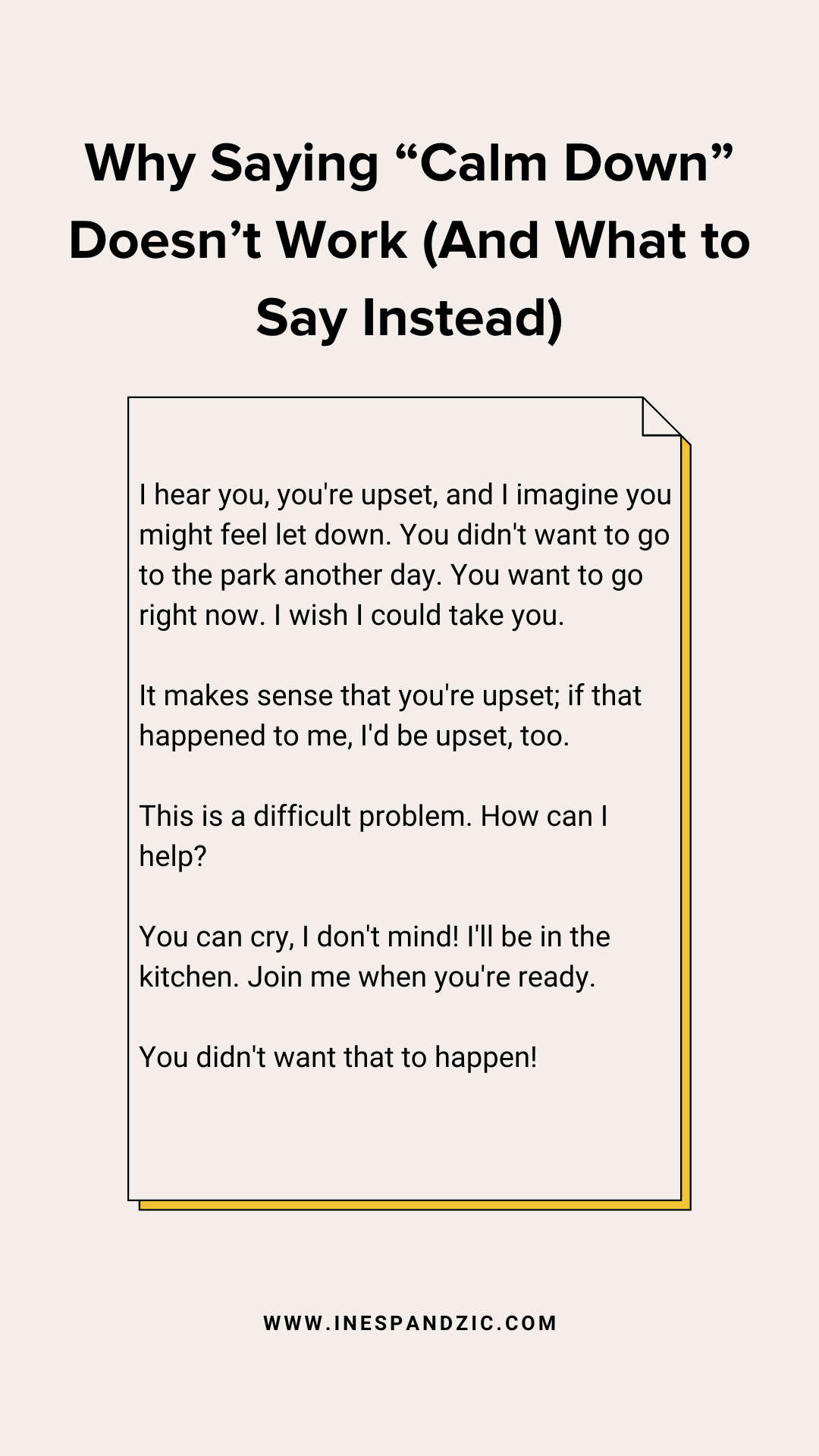Why Saying “Calm Down” Doesn’t Work (And What to Say Instead)
Telling a child to "calm down" does not work because of the controlling, dismissive and invalidating undertone. Aimed to make the child less agitated, saying "calm down" only makes things worse because sometimes we do not want to calm down, we want to be heard first.
When children are agitated, angry, or upset, it may be difficult for them to process verbal information. Wait until they have expressed their frustrations and attempted to explain their feelings. Use short sentences. Agree whenever possible. Identify wants and needs even if those wants and needs cannot be granted. Alternatively, focus on the feelings, not just the facts: "You wanted the chocolate chip ice cream, not vanilla. It is hard not to get what you want sometimes." Demonstrate body language that shows we want to listen and for everyone to be safe (e.g., relaxed facial expression, giving space, speaking clearly).
When children feel upset, our statements are critical. Especially positive, helpful statements, for example, " please tell me more, so I better understand how to help you." This is an example of verbal de-escalation. A de-escalation takes a form of a verbal loop where we listen to the other person, find a way to respond that agrees with or validates the other's position, and then state what we want the person to do (Richmond et al., 2012).
What Can Parents Say Instead?
Here is what parents can say instead:
I hear you, you're upset, and I imagine you might feel let down. You didn't want to go to the park another day. You want to go right now. I wish I could take you. We can plan a time to do that on Friday afternoon.
It makes sense that you're upset; if that happened to me, I'd be upset, too.
This is a difficult problem. How can I help?
You can cry, I don't mind! I'll be in the kitchen. Join me when you're ready.
You didn't want that to happen!
-
Faber, J., & King, J. (2017). How to talk so little kids will listen: a survival guide to life with children ages 2-7 (First Scribner edition.). Scribner.
Richmond JS, Berlin JS, Fishkind AB, Holloman GH Jr, Zeller SL, Wilson MP, Rifai MA, Ng AT. Verbal De-escalation of the Agitated Patient: Consensus Statement of the American Association for Emergency Psychiatry Project BETA De-escalation Workgroup. West J Emerg Med. 2012 Feb;13(1):17-25. doi: 10.5811/westjem.2011.9.6864. PMID: 22461917; PMCID: PMC3298202.
Rolland, R. G. (2022). The art of talking with children: the simple keys to nurturing kindness, creativity, and confidence in kids (First edition.). HarperOne, an imprint of HarperCollinsPublisher

